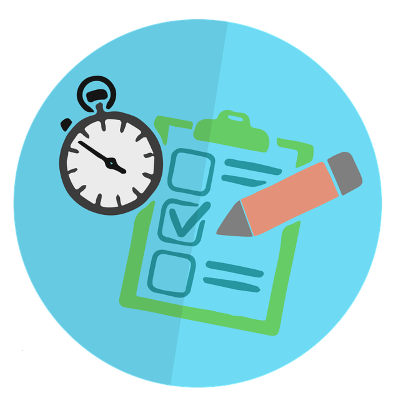What is productivity?
Productivity is the rate, quality and quantity of one’s results ( also known as output) compared to the effort and resources (also known as input) that go into pursuing those results. It describes the rate at which we produce desired results. High productivity means a high rate of production and effectiveness at getting desirable results over a set time.
For the most part, productivity can be measured. For example, the number of calls made in a day by the sales team or dresses made in a month by the production team? However, there will be times when it is not so easy to measure or quantify someone’s productivity.
The most basic and natural way of measuring productivity is looking at the quantity or quality of output (results) produced in light of the input invested (such as resources, effort and time). You will then find productivity can be described as high, low or one that breaks even.
With more and more of us working away from the office since the Covid-19 pandemic, it is ever so important to reassure ourselves, our clients and employers of our productivity. This article focusses on productivity at work but you will find that most of the principles and tips can also apply to personal productivity outside of work as well.

Why is it important to be productive at work?
Whether working from home, the office, on site or flexibly – productivity is important to every one of us because it has huge benefits for us as individuals and for the organisations we work for.
- Individual benefits
Achieving high productivity in your job means you are effective and efficient at what you do. When achieved consistently, it builds you a track record for delivering results at work. In turn this can earn you a number of benefits including more recognition, more responsibility and opportunities for growth, increased rewards such as bonuses and commissions, time-back if no overtime is available, promotion, impeccable references when you’re ready to move on, trust from management, a great personal legacy, excellent work experience/achievements for your CV, better job prospects, among others.
- Organisational benefits
A company’s productivity is often determined by how productive its employees are. High overall productivity is important for a company to survive and thrive in a competitive world. It means the company is delivering products and services that satisfy or exceed customer satisfaction. In turn that ensures the company is able to stay in business, be a trusted brand and pay its employees. A healthy bottom line also offers ample justification for the company to receive continued investment, to diversify or expand into other products and services, and above all motivate its staff through financial or non-financial perks.
What affects your productivity at work?
Productivity can be affected by things that are external or internal to us:
- External factors are things outside of yourself that can reduce or increase your productivity. For example a comfortable chair or the right tools for your job.
- Internal factors are the things within you that can affect your productivity. For example lack of motivation or being unwell.
It is worth knowing what factors affect your productivity but remember you may not always be able to control them. For example, no one can control the weather but you could control the temperature in your office or home.
Tips to improve your productivity at work
1. Productivity and your physical environment
Your immediate environment has a huge impact on your productivity. Optimise it to make sure it is supporting you to perform at your best. Organise your work environment to your preference – for some people, clutter affects their thinking while others think of it as creative mess. Some things to consider for your work space;
- Keep your work space clean and tidy.
- Regulate its ventilation and temperature.
- Create the right ambience e.g. control lighting and noise levels including music and be sure to consider others if it is a shared space.
- Images might help to inspire you e.g. of an upcoming holiday destination, your loved ones or pet (you could pin it up, or set it as a screen saver or desktop background).
- Assess your work station for safety. UK employers are required by law to facilitate this. Whether working from home or office, be sure this is done. It will ensure you are poised for productivity and most importantly to reduce work-related injury.
- Have appropriate work equipment. Ensure you have the correct and safe equipment needed to be effective in your job. This will vary depending on what you do but it might include a desk, chair, computer, phone, hands-free set, camera, blueprints and prototypes, internet connection, etc.

2. Resources for productivity
Have you got the inputs that you need to get that job done? These are the things that you will use to create that product or service that is needed. Resources can be financial or non-financial, also tangible or intangible. But are very important in enabling you to deliver on your expectations. For example if you are a data analyst, have you got the data you need? If you are a telemarketer, have you got the contacts? If you are an investor, have you got the capital? And so on.
- Be sure to get the right resources in the right quantity and quality
Technology
Love it or hate it, technology is a double-edged sword for people at work. On the one hand it can distract some people and reduce their productivity. On the other, it can offer some amazing opportunities for increasing results at work. Some examples of optimising productivity through tech include;
- Up-to-date technology is powerful (technology changes fast, so be sure to have the level right level of technology for your job/industry).
- Super fast internet connection and an online presence is important.
- Remote working facilities such as collaborative drives.
- read&write software helps support the productivity of neuro-diverse employees e.g. those with dyslexia. You can request a free demo.
- Grammarly enables more impactful writing while saving you from costly and time-consuming mistakes.
- Echo dot through Alexa can enhance your productivity beyond song selection. Echo dot can help with fetching information, making hands-free calls, locking doors and controlling thermostats – sounds a lot like a personal assistant!
3. Your health and productivity
High productivity is not possible without optimal health and wellbeing. It is difficult to be productive if you are not feeling your best, both mentally and physically. Being productive will require taking care of your health. This will most certainly pay off in that you will be better able to handle physical/mental demands of your job and excel at it. Tips to optimise your health and wellbeing while at work;
- Be mindful of what you eat and when.
- Get adequate sleep and rest.
- Manage stress effectively and build high levels of resilience.
- Take regular breaks during working hours.
- Take a periodic breaks in the month or year and find ways to switch off and recover. Book a holiday, SPA break, start a personal project, etc.
- Delegate if you need to and if your level of authority allows it.
- Exercise regularly. Sometimes a brisk walk is sufficient and while at it get some Vitamin D.
- Avoid sitting for prolonged periods of time, if possible. Use an elevated desk to allow you to stand while working. Evidence now shows sitting down has become as harmful as smoking is to our overall health.
- Maintain social connections and networks at work and outside.
- Tend to your spiritual fire if you have one. Pray about productivity, if you believe in prayer.
- Have fun. Enjoy doing what you do.
- Be wise and know when to seek help. There is no shame in it, only admiration.

4. Clarity of purpose and productivity
Have a clear understanding of the task or work at hand. Be clear what is required of you or of the products and services you are expected to deliver. Know as much as possible what you are trying to achieve. Though desirable, bear in mind this level of clarity may not always be possible. To help you be clear on purpose;
- Get the targets, task or expectations clearly defined and agreed.
- Request for documents or more information about the task e.g. specifications, blueprints and prototypes.
- Be clear on how your success or productivity will be measured. Quantify these measures for success and agree on the limits for what will be acceptable. Negotiate these measures if unrealistic.
- Maintain proactive and regular communication throughout the task.
- Know your company’s processes and procedures. Also who or which department does what in order to save you time when you need their advice or support.
- Once you understand what is required of you, make a great first impression and be sure to be known for being productive.
- Focus on the right level of detail (depending on your job role). There is benefit in seeing the big picture despite your level of authority.
- Remember productivity is easier if you are in your most preferred career.
5. Productivity, leadership and direction
Productivity is a two-way street. Quality leadership and management is needed to enable productivity. Clear direction and ongoing support should be given to those working to deliver products and services. Management should keep their expectations as as clear as possible and effectively unblock barriers and challenges that their employees may encounter. Tips for effective leadership and management;
- Provide clarity of direction, tasks and expectations – as much as possible.
- Refrain from micromanagement. Give authority where appropriate.
- Communicate effectively.
- Be strategic (see the big picture and help other to) but think operationally which will know what your staff needs in order to get on with their job.
- Motivate your employees.
- Give and receive feedback regularly and effectively.
- Offer opportunities for growth.
- Problem-solve and offer support.
6. Feedback and productivity
Find out how you are doing as regularly as possible. But be careful not to appear needy for approval or incompetent in doing your job. The idea here is to know what is working well in how you are doing your job. Then to use that knowledge to improve your productivity, or maintain it if it is already high.

Some tips on giving and receiving feedback;
- Schedule in a regular time with your manager or senior leadership to discuss progress and final product.
- Be agile in your work approach. If you are working on a product, think of sharing a good first draft or a Minimum Viable Product (MVP) for feedback. You do not have to wait till the product is finalised, just in case you have to rework it all.
- Send feedback requests to those who may use your services and products. For example after delivering a course, app, etc.
- Ask colleagues to give you feedback. You can do this informally or more formally through processes such as appraisals and 360 degree feedback.
- Know how to handle positive and negative feedback. Expect positive and negative feedback.
- Give constructive feedback to colleagues and to your manager also regarding their quality of leadership/management, especially if it is affecting affecting your productivity.
- Celebrate good feedback and take action on areas that need improvement.
7.Flexibility and productivity
Being flexible and adaptable is one of the top five soft skills for those in professional careers. It means being able to adjust yourself to changes at work and still deliver (or exceed) on your expectations. Covid-19 pandemic pushed our boats out on flexibility. Staff who worked from home during this time showed that with the right conditions, people can be equally productive when working from home. How to be more flexible;
- Don’t be afraid of change. Expect some things to change e.g. management, colleagues, tasks, plans, requirements, resources, location, etc.
- Maintain regular communication with senior leadership, managers and colleagues. Read internal company news. Stay updated.
- Try and embrace different ways of working. Be curious and innovative. Be a change champion.
- If working in different locations remember some things may take longer or work differently depending on whether you are working virtually, in the office or on site. Adjust your approach and patience.
- Be ready to work from different locations – at home, in the office, on site or as required. Flexible and blended work contracts have increased since the Covid 19 pandemic.
- Request for flexible hours. This is provided for by law in the United Kingdom and may be the case in other countries. If it is not legally provided for in your country, find out if your employer allows it or is open to it.
- See opportunities whenever change occurs. It is also ok to grieve any losses that happen as a result of change at work.
8. Be organised for productivity
Productivity is often measured against time, among other inputs. You will need to be organised if you are going to meet your targets and productivity goal. Especially because our lives are not just about work. We are more than our jobs – for example a journalist might also be a father, brother, volunteer and musician. Being organised will help you keep a healthy work-life balance and increase your productivity.

Tips for being organised;
- Prioritise!
- Remember work is only part of who you are. Maintain balance by handling both your professional and personal responsibilities.
- Try not to do too much all at once. It can be less effective.
- Make rough plans (but be mindful these may change). Budget for your time and allocate sufficient time for tasks. Use a planner if needed e.g. commute time, emails, etc.
- Get help if you have too much to do e.g. get a cleaner if you can afford one to help with your domestic chores while you concentrate on other responsibilities.
- Delegate or make alternative arrangements.
- Set reminders.
- Block time in your diary to do important or urgent stuff.
- Avoid the last minute rush, where possible.
- Have a routine and stick to it largely – whether working from, office or on site.
- Learn to say “no” if this is affecting your productivity.
9. Control and productivity
How much control do you have over your work, tasks or results? Whether little or a lot, we all have some amount of control. Use it to your advantage to get you the best levels of productivity possible. How?
- Make timely decisions, both big or small. Keep a written audit trail of important decisions, where possible.
- Approve decisions on time, if this required of you. If you have authority over staff or make certain decisions on their behalf, do this in a timely way to allow them to progress with their work and deliver to you the results you require.
- Negotiate for more control from your manager/leaders. If hierarchical decisions are slowing you down, you may be able to get more authority over certain decisions, though perhaps with caveats. Speak to your manager about it.
- Avoid feeling powerless or victimised at work. Where real concerns exist, get these resolved in order to increase productivity and enjoyment at work.
- Know your most productive time and ringfence it for high-profile work. For some such a window may fall at the start, middle or end of their working day, for others it varies.
- Minimise distractions. Do an honest analysis to identify sources of distraction in your work environment e.g. your phone, social media, traffic noise, etc. Establish which of these are in your control and reduce their impact e.g. can you put your phone on silent for a period of time?
- Manage your meetings. Some meetings can be counterproductive and disruptive to your productivity flow. Decide and negotiate which meetings you need to attend.
10. Collaborate for productivity
Depending on the task at hand, two heads might be better than one. Collaborating will increase your productivity, as well as help you to deliver well-thought-out, innovative and impactful results.
- Ask colleagues to work with you on your project or to ask for their ideas and incorporate these where possible. Collaborate with colleagues on their projects as well.
- Establish a working group to facilitate collaboration.
- Share ideas as they emerge and ask for comments.
- Network with colleagues. Attend social events organised by and for colleagues
- Showcase your work periodically to the rest of your team/colleagues and organisation.
- Make efforts to collaborate with others. As we work more and more from home, it has been found that colleagues are communicating less and less, which affects productivity.
At times collaboration will feel like it’s slowing you down as you have to let others do their part. But with good preparation and coordination, collaboration most definitely complements productivity.
What else has had an impact on your productivity or that of your employees?

